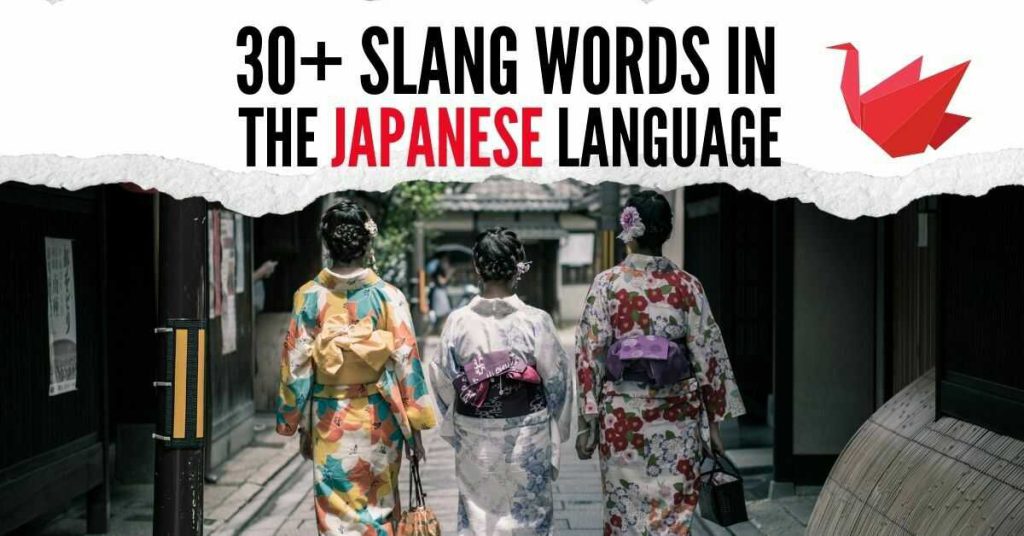Interested to speak not just the standard Japanese but to sound like a total native? In today’s post, we will walk you through the direct translation for some of the most popular Japanese slang words that native speakers use among family members, friends, and colleagues.
If you are up for that, then let the learning of Japanese begin!
How To Learn Japanese The Right Way
Before diving into Japanese Slang Words, it is important to know that Japanese culture, or Asian culture in general, is different from most of what we know.
When it comes to learning a new language, language enthusiasts like you should not just focus on learning the critical grammar rules and memorizing words or phrases. If you are truly interested in connecting better and communicating with the Japanese people deeply, learning slang words and using them at the right time can help you out.
But then again, please do remember that Japanese slang words should not be spoken lightly since the locals firmly put emphasis on the idea of “politeness” in the form of Keigo (敬語) and Teineigo (丁寧語).
As a rule of thumb, it would be wise first to learn how to do the ba no kuuki wo yomu (場の空気を読む) or the process of reading the room. This is a common phrase in Japanese culture as it urges everyone to pay close attention to common speech patterns in order to identify exactly what type of language you should use in order to stay polite.
After all, you do not want to be caught dead using slang when the person you are speaking with is only using polite language with you, right? So, if you are still training your ear about how casual language and polite language in Japanese sounds, you can use this guide here:
- When you are speaking with really close Japanese friends, Japanese slang phrases and words are ideal to use.
- If you are conversing with colleagues, family, younger people, and people of the same rank as you, casual speech mixed with e few slang terms or everyday language is good to use.
- When speaking with superiors, people of higher ranking, and strangers, using polite Japanese language in the desu-masu form is a no-brainer.
- For business and formal situations, there is no denying that using the extremely polite Japanese language is important.
Now that we know a few pointers on when to use slang in real-life interactions, we do understand that some of you might be wondering if it is also considered okay to use Japanese swear words as a form of slang. This is because, in most Western countries, rude words are shared between friends and are sometimes used as an endearing form of language between them. However, please do note that the Japanese language has a lot of words like this, but it is not usual for a foreigner to use them. So in order to stay on the safe side, we highly recommend that you stay away from these words.

Why Learn Japanese Slang?
Now that you are learning the Japanese language, perhaps you are wondering why you should even consider learning slang words. Here’s the truth: learning Japanese slang helps you create a sense of belongingness and even allows you to gain perspective about how the locals behave and think.
While using dictionary language is great when speaking with people of authority, using casual slang words or even internet slang can help you connect with the younger generation and understand them better. After all, slang words are lexical innovations that are heavily based on how society functions. Therefore, if you want to stay relevant, it’s time that you start mastering Japanese slang.
Common Japanese Slang Words
And speaking of mastering Japanese slang, let us now hop on over to some of the most common Japanese slang that you can use today!
| English Word | Japanese Word | Pronunciation Guide |
| Annoying | ウザい | Uzai |
| Awful | ひどい | Hidoi |
| Can’t be helped | 仕方ない | Shikata nai |
| Condominium/ Apartment | マンション | Manshoon |
| Cool (related to appearance) | かっこいい | Kakkoii |
| Cute | かわいい | Kawaii |
| Damn / OMG/ Wow | ヤバイ | Yabai |
| Delicious | うまい | Umaii |
| Don’t mind | ドンマイ | Donmai |
| Exactly/ I know right? | それ な | Sore na |
| Fighting! | ファイト | Faito |
| For real? | ガチ | Gachi |
| For real? / Seriously? | まじで / マジ | Maji de / Maji |
| Good job | おつ | Otsu |
| ググる | Guguru | |
| Gross / Bad feeling | きもい / キモ い | Kimoi |
| Hey | よー | Yo |
| Hi | お っす | Ossu |
| Horray | やった | Yatta |
| I see | あね | Ane |
| Idiot | あほ | Aho |
| Irritating | ムカ つく | Mukatsuku |
| Lazy | ダル | Daru |
| LOL / Interesting | うける | Ukeru |
| Meh | 微妙 | Bimyou |
| No (showing disgust) | いやだ / やだ | Iyada / Yada |
| No way | うそ | Uso |
| Party people | パリピ | Paripi |
| Pretty boy | イケメン | Ikemen |
| Really? | 本当 | Hontou |
| Right! | 確かに | Tashikani |
| See you | またね | Mata ne |
| Sneaky | ずるい | Zurui |
| Super Delicious | 激うま | Geki Uma |
| Thank you | おおきに | Ookini |
| Thanks | あざ | Aza |
| The worst | さいてい | Daitei |
| Tired | しょんどい | Shondoi |
| To leave | ドロン | Doron |
| Totally! | ちょ | Cho |
| Trendy | おしゃれ | Oshare |
| Unfair | ズルい | Zurui |
| Very/ Really | めっちゃ | Meccha |
| Wild | 半端ない | Hanpa nai |
| Wow | すごい | Sugoi |
Want to browse through different Japanese words and phrases? Go for the Ling app! It contains 200+ lessons filled with reading, writing, speaking, and listening topics for you to choose from.
Check it on the Play Store or App Store now!
Internet Japanese Slang
Now that we know the common casual slang used in Japan, it’s time to get to know some of the internet slang used by young people online.
| English | Japanese | Pronunciation Guide |
| Now | なう | Nau |
| Favorite | ファボる | Faboru |
| Talk to me | かまちょ | Kamacho |
| Used when playing | 555 | Go Go Go |
| Idiot | ばか | Baka |
| Lamo | ダサい | Dasai |
| Brat | 悪ガキ | Waruguki |
As we reach this part of the post, we hope that you got the chance to find out the meaning of some of the most common Japanese slang words used by the locals. Have you heard any of these before? Then, let us know your favorite one in the comment section below.
If you enjoyed this blog post and would love to get more information and useful tips for the Japanese language, please be sure to check out our previous posts, like how to say thank you like a real pro and the best way to greet a happy birthday in Japanese. Also, don’t forget to check out the Ling App, as this is one of the best language learning tools for mastering Japanese. Learn more about it below.
Ready To Master The Japanese Language?
The Ling app is an innovative, free language-learning platform that includes language courses, games, and learning resources for over 60+ foreign languages including Japanese. From the inside, you’ll learn a lot about the grammatical intricacies of your target language, writing system, and how to choose the right phrases and words to give a lasting impression. What are you waiting for? Download it today and start learning right away!




































